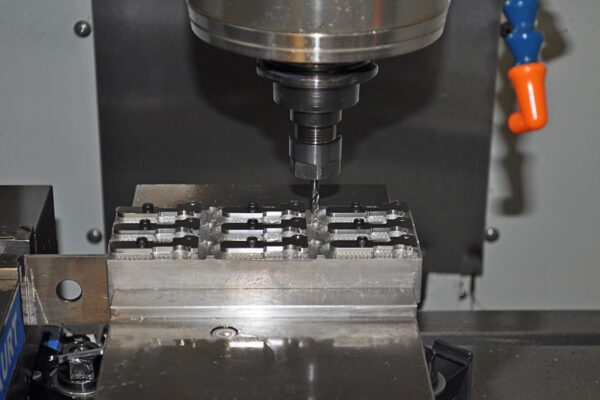 In the world of custom fabrication, the leverage granted by CNC lead times and turnaround can make or break a project. Customers demand high-quality products, but they also want them quickly. In recent years, computer numerical control (CNC) technology has revolutionized the custom fabrication industry. This technology has had a significant impact on lead times and turnaround, allowing manufacturers to produce high-quality products faster and more efficiently than ever before. In this article, we will explore the impact of CNC technology on lead times and turnaround in custom fabrication.
In the world of custom fabrication, the leverage granted by CNC lead times and turnaround can make or break a project. Customers demand high-quality products, but they also want them quickly. In recent years, computer numerical control (CNC) technology has revolutionized the custom fabrication industry. This technology has had a significant impact on lead times and turnaround, allowing manufacturers to produce high-quality products faster and more efficiently than ever before. In this article, we will explore the impact of CNC technology on lead times and turnaround in custom fabrication.
What is CNC Technology?
CNC technology involves the use of computer software to control the movement of machines and tools. In the context of custom fabrication, this means that a computer program can control the cutting, shaping, and drilling of materials such as metal, wood, and plastic. CNC machines are capable of producing complex shapes and designs that would be difficult or impossible to achieve using traditional fabrication techniques.
Impact on Lead Times
Lead time is the time it takes to complete a project from the moment the order is placed to the moment it is delivered. In the custom fabrication industry, lead times are a critical metric, and customers often demand shorter lead times to stay competitive. CNC technology has had a significant impact on lead times in several ways:
- CNC machines are much faster than traditional fabrication methods. They can perform multiple operations simultaneously, which reduces the time it takes to complete a project. For example, a CNC machine can cut, drill, and shape a piece of metal in a matter of minutes, whereas traditional methods may take hours or even days.
- CNC technology is highly accurate and consistent. This means that there is less room for error or rework, which can save time and reduce lead times. With traditional fabrication methods, it may be necessary to create multiple prototypes or make adjustments during the production process, which can significantly extend lead times.
- CNC technology is highly flexible. This means that manufacturers can quickly switch between different projects or products without significant downtime. This flexibility allows manufacturers to respond to changing customer demands and market conditions, which can help them stay competitive and reduce lead times.
Impact on Turnaround
Turnaround time is the time it takes to complete a project once it has been started. In the custom fabrication industry, turnaround times are critical, as delays can cause significant problems for both the manufacturer and the customer. CNC technology has had a significant impact on turnaround times in several ways.
- CNC machines are highly efficient. They can perform multiple operations simultaneously, which reduces the time it takes to complete a project. This efficiency allows manufacturers to produce products faster and more efficiently, which can significantly reduce turnaround times.
- CNC technology is highly accurate and consistent. This means that there is less room for error or rework, which can save time and reduce turnaround times. With traditional fabrication methods, it may be necessary to create multiple prototypes or make adjustments during the production process, which can significantly extend turnaround times.
- CNC technology is highly reliable. This means that manufacturers can count on consistent performance and quality, which can reduce the risk of delays or rework. This reliability allows manufacturers to meet tight deadlines and deliver products on time, which can help them maintain good relationships with customers and reduce turnaround times.
- CNC technology has had a significant impact on lead times and turnaround in the custom fabrication industry. It has made the production process faster, more efficient, and more reliable, which has allowed manufacturers to produce high-quality products in less time. With CNC technology, manufacturers can respond to changing customer demands and market conditions, reduce lead times, and deliver products on time. As the technology continues to evolve and become more advanced, we can expect to see even greater impacts on the custom fabrication industry in the years to come.
 IN-X Machine, Inc.
IN-X Machine, Inc.